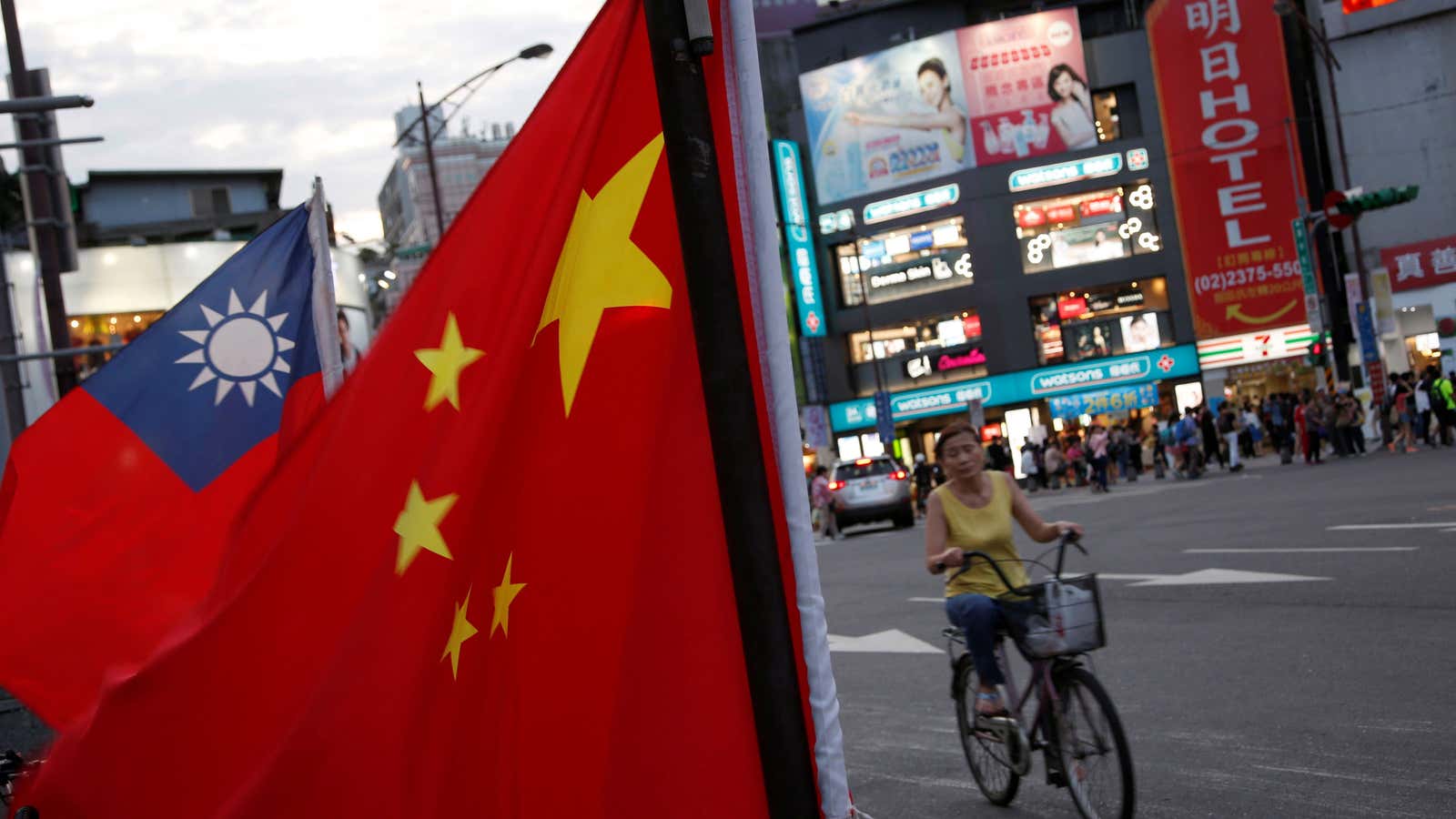China is again acting against celebrities in the Chinese-speaking world perceived to hold views unfavorable to the country—but this time it’s doing so more explicitly.
China’s Taiwan Affairs Office spokesperson An Fengshan confirmed Wednesday (March 28) that a Taiwanese movie called Missing Johnny, scheduled to release in China next month, won’t be allowed to play in mainland cinemas after reports circulated on Chinese social media on the lead actor’s ties to a party that supports independence for the self-governing island.
And other movies whose actors are perceived to support independence from China, which considers Taiwan an integral part, won’t be welcome either.
“If these Taiwanese artists recognize the mistakes and harms of Taiwan independence, and make changes in their thoughts and behavior, we will welcome it. Currently the matter of the film being shown in the mainland has been shelved.”
The Taiwanese film, which depicts three young people’s explorations of love and life in Taiwan’s capital city Taipei, was originally scheduled to screen in the mainland around mid-April. Then news about the film’s main actor, Lawrence Ko, and his ties to a pro-independence party began trending on the Chinese microblog platform Weibo over the weekend.
On Saturday (March 24), a Weibo account called Voice of Reunification posted screenshots (link in Chinese) of news articles that said Ko was a supporter of the New Power Party, a pro-independence political party that emerged from Taiwan’s anti-China Sunflower Movement of 2014, and that noted that his father, I-Chen Ko, is a member of the party. One screenshot appeared to show a 2015 social media post from Ko saying “please support the New Power Party.” Ko didn’t immediately respond to Quartz’s request for comment.
The movie’s Taiwanese distributor Mirror Stage Films said it received a notice on Monday from the film’s mainland distributor that the film’s screening had been suspended. “It didn’t specify the reasons, so we don’t want to make any assumptions or associations,” Mirror Stage Films said in a statement to Quartz. Blueberry Pictures, the Beijing-based distributor for the movie, didn’t immediately respond to queries.
Last year, China was also believed to have acted to bar celebrities it deemed to have undesirable views from accessing the Chinese market. In January 2017, it was reported that China’s Ministry of Culture had issued a blacklist to dissuade Chinese entertainment companies from engaging 55 celebrities from Taiwan, Hong Kong, Japan, and other places. Many people on that list had expressed support for pro-democracy movements such as Hong Kong’s 2014 Occupy protests. The ministry, however, later denied the existence of such a notice.
Earlier, a Chinese film also dropped Taiwanese actor Leon Dai for his alleged support for Taiwan independence. Dai later said it was wrong to characterize him as being in favor of Taiwan independence.
